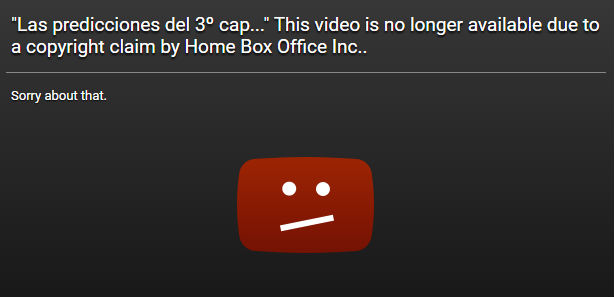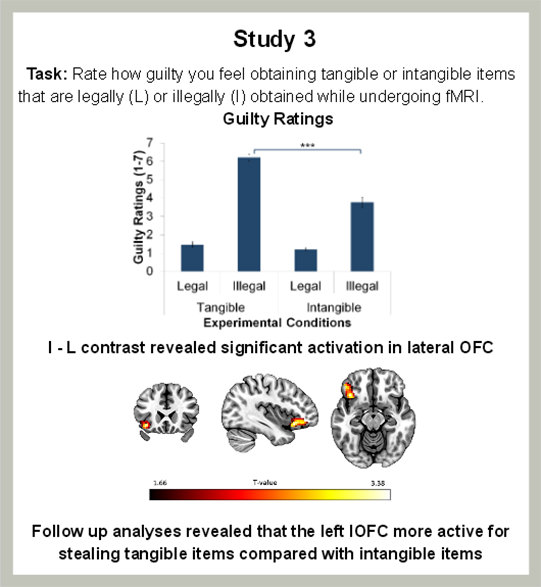UK Government Expands Crackdown on Online Piracy
mardi 10 mai 2016 à 13:42 In various publications and reports in recent months, the UK has been described as a world leader in intellectual property enforcement. Indeed, news of various operations and dozens of arrests carried out by the Police Intellectual Property Crime Unit (PIPCU) have regularly appeared in the media.
In various publications and reports in recent months, the UK has been described as a world leader in intellectual property enforcement. Indeed, news of various operations and dozens of arrests carried out by the Police Intellectual Property Crime Unit (PIPCU) have regularly appeared in the media.
This morning the UK Government has announced that it intends to build on this reputation with the publication of a new strategy titled Protecting Creativity, Supporting Innovation: IP Enforcement 2020.
The document outlines a four-year strategy which aims to provide an environment in which UK rightsholders have access to “proportionate and effective mechanisms to resolve disputes and tackle IP infringement” both at home and overseas.
The strategy has six key points, with reducing the level of illegal online content placed at the top of the list and strengthening the law closely after. The government also wants to increase its educational programs with the aim of building respect for intellectual property.
A significant emphasis on dealing with online infringement sees the government focus on a number of key areas, from those sharing files online to the sites facilitating infringement. Search engines also come under the spotlight.
Interestingly, the main points are all framed at helping the consumer to both recognize and then avoid copyright infringing websites.
Notice and takedown, notice and trackdown
Given the Copyright Office DMCA review currently underway in the United States, it’s no surprise to find a review of notice and takedown procedures heading the list in the UK. The government says that it wants to “improve and streamline the process” while considering the scope for introducing a Code of Practice for intermediaries.
More controversially, the four-year strategy also includes the possibility of introducing a system of “notice and trackdown” which would enable rightsholders to not only send notices but also take action directly against identified infringers.
Safe harbor (or platform liability as its referred to in the report) will come under the spotlight as well, with the government seeking clarification from the EU on current rules.
Dealing with pirating Internet users
On top of the “notice and trackdown” elements detailed above (presumably for the minority who post infringing links on websites etc), the report envisions effort being placed on encouraging consumers to buy from legitimate sources. Mainly, this will be achieved through the long-delayed warning notice system under development at ISPs.
“This government will also build on progress made under our voluntary anti-piracy projects to warn internet users when they are breaching copyright and work to ensure that search engines do not link to the worst-offending sites. This is in recognition of the fact that the clear majority of consumers want to do the right thing, to abide by the law and support our creative industries,” says Minister for Intellectual Property Baroness Neville-Rolfe.
“Helping those consumers to understand what is, and is not, allowed online, and helping guide them to legal content when they search, will help ensure that the vast appetite that exists for new and creative content benefits the legitimate creators, and not those criminals who cynically exploit the hard work of others.”
To help users make the right choice, the government is promising to give more support to industry initiatives such as FindanyFilm.com and the GetitRight campaign while encouraging education campaigns focused on children and students.
“We will work with intermediaries, rights holders and trade bodies to highlight all the UK’s legal sources of content,” the government says.
Targeting pirate sites, services, and their operators
In addition to honing the existing Infringing Website List (IWL), emphasis will be placed on depriving sites of their income via the “Follow the Money” approach and reducing the numbers of visitors they currently enjoy.
“We will continue to work with brand advertisers, advertising intermediaries and
law enforcement partners to highlight the value of the IWL and will support groups
such as the Digital Trading Standards group (DTSG) in promoting their UK good
practice principles,” the report notes.
Existing efforts to deprive sites of the ability to process funds will be maintained, with the government promising to seek commitments from payment processors such as PayPal, MasterCard and VISA to make it more easy for service to be declined following complaints from law enforcement.
Of course, no “pirate site” strategy would be complete without the inclusion of a blocking regime and as expected the UK government leaves no stone unturned.
“This government has also pledged to protect intellectual property by continuing to require internet service providers to block sites that carry large amounts of illegal content, including their proxies,” Baroness Neville-Rolfe explains.
“The UK has a good track record in the development of injunctive relief for online infringement, but this is something that must be preserved, and even enhanced to cope with the sheer numbers of infringing websites that spring up every month, and the new business models they employ.”
The government further sees an opportunity to make the blocking process easier to access for smaller businesses.
“We will continue our work to support businesses of any size to navigate and utilize the civil court system by improving the guidance that is currently available, including guidance on the minimum levels of evidence required for website blocking orders, and by ensuring that court judgments and cases are published on a regular and consistent basis,” the report reads.
The UK also sees potential for cooperation with the EU on injunctions, more on that in a moment.
Interestingly, it appears that ‘pirate’ set-top streaming boxes have rightsholders and by extension the government pretty rattled. They get a special mention in the report with the government noting that a greater understanding of the challenges they present is required. Furthermore, the report says that the government will consider what kind of new legislation might be needed to tackle them.
Search engines and social media
According to the report, the government will work with search engines and social media platforms to reduce the availability of infringing content. This will include a review of their current “notice and takedown” procedures and see the government considering the options for rightsholders to challenge infringers under “notice and trackdown” as detailed above.
The review process will also determine whether Codes of Practice are required for platforms including Google, Facebook and Twitter.
Overseas cooperation
While there are issues locally, the government sees the piracy problem as one to be solved cooperatively on an international basis. To this end there will be requests to partners overseas to carry out “domain and hosting enforcement action” when UK interests are at stake.
“This will include exploring with European colleagues the options for mutual recognition of the evidence required for injunctions and court orders in various member states,” the report reads.
This item is of particular interest since around 1,000 ‘pirate’ sites are already blocked by injunction in the UK. Streamlining the process EU-wide would be a major bonus for rightsholders.
The UK Government’s four-year IP enforcement strategy can be found here (pdf)
Source: TF, for the latest info on copyright, file-sharing, torrent sites and ANONYMOUS VPN services.
 As one of its hottest properties, HBO has become very protective of Game of Thrones.
As one of its hottest properties, HBO has become very protective of Game of Thrones. 



 This week we have four newcomers in our chart.
This week we have four newcomers in our chart.  At TorrentFreak we regularly receive concerned emails from Pirate Bay users who have spotted an influx of suspicious torrents on the popular torrent site.
At TorrentFreak we regularly receive concerned emails from Pirate Bay users who have spotted an influx of suspicious torrents on the popular torrent site.